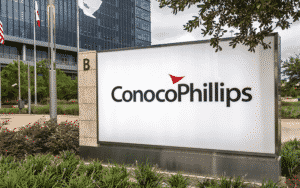Raheem Akingbolu writes on the brouhaha surrounding the recent increase in DStv and GOtv subscription fees and the need for government and other stakeholders to take another look at the issue without harbouring any sentiment
This is not the best of times for business owners, but on one hand, is the desperate move to win consumers loyalty and on the other strategising on how to meet its return on investment.
All these notwithstanding, businesses owners are also struggling to meet their responsibilities to regulatory authorities as well as keeping to their social corporate responsibility philosophy.
The above scenario aptly captures the current development at MultiChoice Nigeria. Unlike many companies that have taken the exit route out of Nigeria or reduced investment and workforce due to their inability to meet their target, MultiChoice has consistently maintained its grip on the market without cutting down on workforce and operations, despite the harsh economic reality.
To bridge the gap and sustain the tempo, the PayTV company had no choice but to adjust its DStv and GOtv subscription fees which were recently done. Unfortunately, the step led to an unexpected debate, pitching the management against the Federal Competition and Consumer Protection Commission (FCCPC). While analysts and stakeholders assume that market forces compelled the company to take the decision, the government through the FCCPC saw the hike in price as an opportunity to prove to the public that they are fighting their cause.
Realities Beyond Emotion
Beyond the local reality, global trend has also vindicated MultiChoice because a cursory look at prices across Africa has clearly shown that the company has been fair in its approach to price review in Nigeria. But in what some critics have dismissed as a mischievous step to blackmail MultiChoice, FCCPC challenged this decision, leading to a legal dispute now before the Federal High Court in Abuja and in Lagos.
Those who pitch their tent behind the company are arguing that the government is being economical with the country’s and even global economic reality which has, in recent times, sent many companies packing from the market. To them, the decision to adjust subscription fees is largely to ensure sustainability and continued investment in quality entertainment and infrastructure.
However, experience in the last few years have shown that MultiChoice is prone to backlash because of limited understanding of the issues and poor awareness of the situation with comparative services in Nigeria as well as Cable costs in similar countries. Rather than playing into the gallery, the time has come for stakeholders in the industry, government inclusive, to go to the drawing board and design a framework to deepen citizen education and provide data and insights that could lead to nuanced discussions while avoiding sensationalism or opportunistic and negative ambushes.
Without being unnecessary emotional, no doubt the fact that beyond delivering quality entertainment, MultiChoice has been instrumental in the growth of Nigeria’s creative industry, especially music, film, and sports; providing platforms that amplify voices, empower talents, and give Nigerian stories a vast stage. Through investments in content, skills development, and initiatives like the MultiChoice Talent Factory, AMVCAs and more, the brand has played a key role in shaping careers and driving industry growth. This adjustment ensures that MultiChoice can continue to support creators, producers, and the broader entertainment ecosystem while maintaining the standards audiences expect.
MultiChoice’s Zeal
Talk of a brand that has consistently been vilified and subjected to unnecessary regulatory scrutiny and MultiChoice name will be mentioned. Over the years, the company has been subjected to various marketing probes due to wrong perception and biased opinions. In the last 15 years, more than five brands have shown interest in the market but none has been able to survive the market. To this end, promoters of those companies have been in the forefront of those campaigning against MultiChoice.
But in the midst of all these, the company has been steadfast in its belief in the Nigerian market and its teeming patrons. Even when morale is down in the market due to currency devaluation, inflation, and increased operational costs, the company has consistently invested millions of dollars in infrastructure, content licensing, and enterprise development. With this stance, MultiChoice has demonstrated its strong faith in Nigeria’s market and economic potential, demonstrating resilience in the face of financial adversity.
One of the most significant aspects of MultiChoice’s presence in Nigeria is its extensive enterprise development programme. The company operates 11 branches and employs over 3,000 staff members directly. It has also cultivated a vast distribution network, including 16 mega dealers, 65 super dealers, 800 branded stores, and 4,562 retailers. This ecosystem is supported by 1,200 installers, 3,197 Sabimen (specialised technicians), 1,200 GOtv canvassers, and 10,000 direct sales agents. By maintaining this extensive workforce, MultiChoice has directly and indirectly created more than 28,000 jobs, further underscoring its economic impact.
Beyond employment, MultiChoice has invested heavily in various sectors, including education, sports, and healthcare. Through the MultiChoice Talent Factory, over 7,700 lives have been positively impacted, providing young creatives with industry training and opportunities. The company has also directly invested over $2.2 million into educational programmes, including MultiChoice Resource Centers and the DStv Eutelsat Star Awards. Healthcare initiatives have received more than N200 million, primarily through partnerships with the Sickle Cell Foundation and its pan-Nigeria network of partner hospitals.
MultiChoice’s support for the Nigerian sports industry is another testament to its commitment to national development. The company has invested over $12 million in sports development, including $5 million in support and production of Super Eagles matches between 2018 and 2023. Since 2023, N800 million has been allocated to local club football, while grassroots football programmes, such as the Higher Institution Football League and NUGA, have received N5 million. Also, over $2.5 million has been invested in the development of boxing from 2015 to 2025, while N100 million was provided as sponsorship for the pre-qualifying tournament in Lagos.
The company’s financial contributions to the Nigerian economy extend beyond direct investments. MultiChoice has paid over $469 million in direct and indirect taxes, with $238 million contributed between FY15/16 and FY22/23 alone.
The company has also remitted $15.1 million in licensing fees to the broadcasting sector regulator and influenced an additional $53.9 million in indirect tax contributions, including Value Added Tax (VAT) and Customs Duties. These figures highlight MultiChoice’s substantial role in supporting government revenue generation.
FCCPC vs MultiChoice
Following public outcry, FCCPC recently wielded the big stick by challenging the company over its subscription price adjustments. The company recently announced an increase in DStv and GOtv subscription rates, citing inflation, rising energy costs, content licensing expenses, and currency volatility.
This decision led to a legal battle with the FCCPC, which challenged the price hike in court. MultiChoice, however, maintains that Nigeria operates a free-market economy, where service providers can adjust prices without regulatory approval. The company also argues that the FCCPC Act does not empower the commission to regulate prices, emphasising that only the president of Nigeria has the authority to impose price ceilings.
Experts believe Nigeria’s economic realities support MultiChoice’s position. Inflation in Nigeria has soared significantly reaching 34.8 per cent at the end of 2024, affecting all industries, including media and entertainment. Companies across sectors, from food production to telecommunications, have been forced to increase prices to stay afloat.
MultiChoice, which acquires content in foreign currency while generating revenue in naira, faces significant financial strain due to exchange rate fluctuations. Failure to adjust prices could threaten its ability to continue delivering high-quality services and supporting local content production.
A comparative analysis of pay-TV pricing across Africa further illustrates the necessity of MultiChoice’s price adjustments. In March 2025, DStv Premium subscription in South Africa cost R929 ($49.36) per month, compared to N44,500 ($29.81) in Nigeria. Similarly, DStv Compact Plus in Kenya is priced at Sh10,500 ($78) per month, whereas Nigerian subscribers pay N30,000 ($20.10). These figures reveal that, contrary to popular belief, Nigeria has some of the lowest pay-TV subscription rates in Africa, despite its economic challenges.
While the FCCPC ordered MultiChoice to suspend the price hike, the company responded by filing a lawsuit challenging the directive. The case is now before the Federal High Court, with a judgment expected on May 8, 2025. This legal battle raises important questions about the role of regulatory bodies in a free-market economy and the extent of government intervention in private business decisions.
“The real issue isn’t MultiChoice’s pricing but economic instability. Businesses across all sectors are adjusting prices due to inflation and foreign exchange fluctuations,” a Lagos-based economic analyst said on the condition of anonymity.
“The case will set a precedent for how regulatory bodies interact with private businesses in Nigeria’s free-market system. If the FCCPC wins, it could reshape corporate autonomy in pricing decisions.”
MultiChoice’s stance is clear: price adjustments are necessary to sustain its investments in content, technology, and talent development.
The company has also implemented mitigation measures to ease the impact on consumers, including the Price Lock feature, which allows subscribers to renew their plans at old rates before the adjustment takes effect. Also, the Step-up offer enables customers to upgrade to higher-tier packages at discounted rates.
The ongoing debate over MultiChoice’s pricing strategy reflects broader economic challenges in Nigeria. Rising inflation, foreign exchange volatility, and increasing operational costs have made it difficult for businesses to maintain stable pricing. Industries across the board have been forced to adjust their prices to survive, and MultiChoice is no exception. The company’s continued investment in local content, enterprise development, and community initiatives demonstrates its long-term commitment to Nigeria’s economy and creative sector.
As the legal proceedings unfold, it is essential for stakeholders to consider the economic realities that necessitate price adjustments. Rather than focusing solely on regulatory disputes, the conversation should also address sustainable business practices and the need for policies that support industry growth. MultiChoice’s ability to maintain service quality, support local talent, and contribute to the economy, depends on a fair and balanced regulatory environment that recognises the financial pressures businesses face in an inflationary economy.


